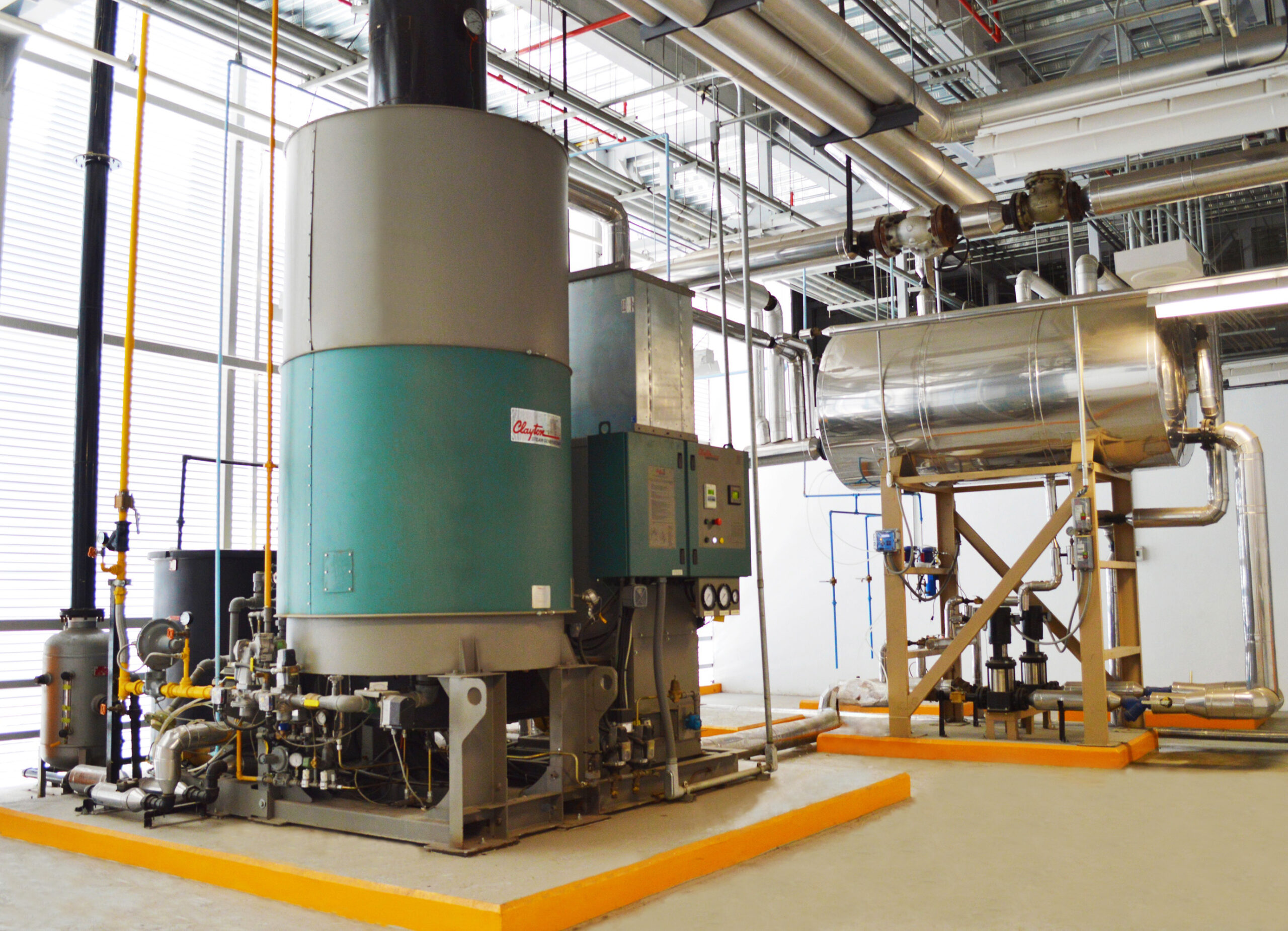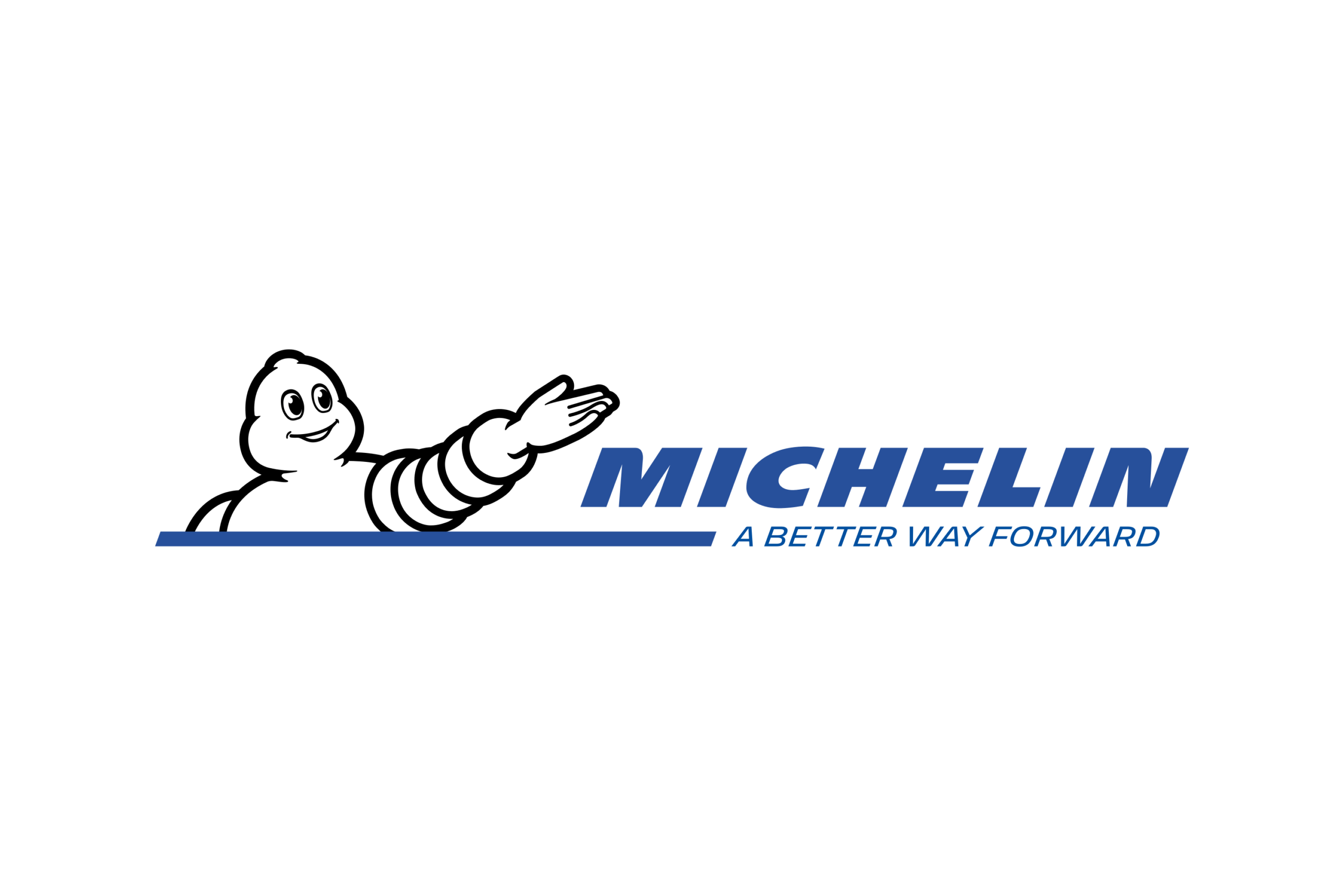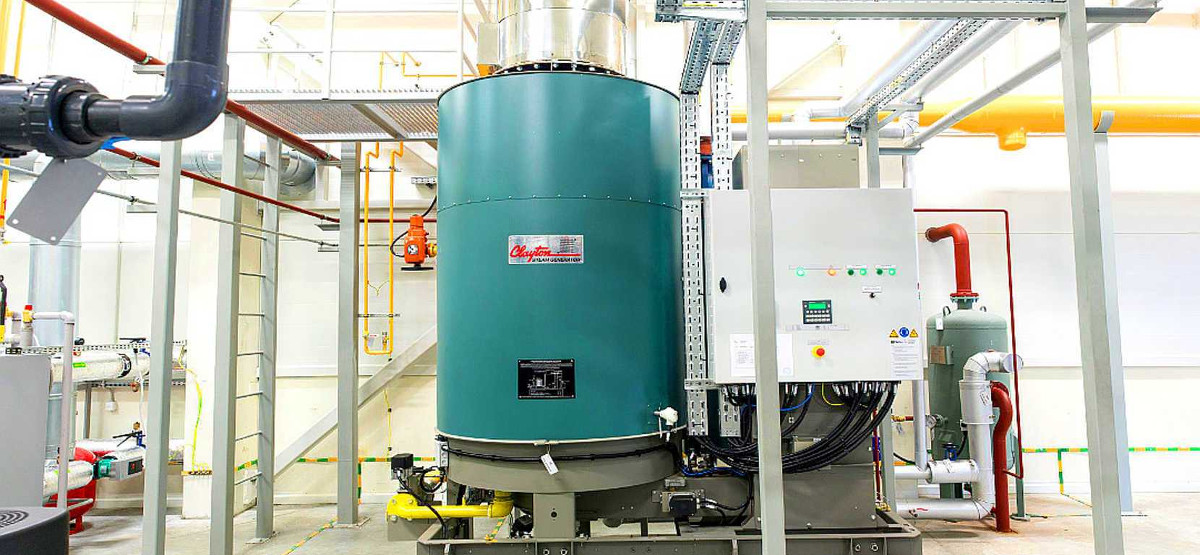Steel Industry
Home > Industries > Steel
Clayton Industries Supports the Steel Industry
Steam is an essential energy source for steel making. It is used for both processes heating and cooling. It is also used to provide mechanical and electrical power for the steel process utilities. A pickle line typically follows the hot mill section of metal production. Once the coiled metal leaves the mill, it is unwound and passes through a series of tanks filled with the pickling acid and rinse tanks. It is then sent for further processing in the cold rolling mill if required. Pickling steel uses an acid solution to remove heat affected areas and the chromium reduced layer from the stainless steel. Pickled steel is free from surface carbon steel contamination and embedded iron particles. It usually has a dull, matte grey finish.
Forging is a manufacturing process involving the shaping of a metal through hammering, pressing, or rolling. This is usually accomplished with a hammer or die. Forging is categorized according to the temperature at which it is performed, either cold, warm, or hot forging.
A steam hammer, or a drop hammer, is an industrial hammer powered by steam to shape hot forgings. The hammer is attached to a piston and moves in a fixed cylinder to reshape hot metal. The hammer is raised by the pressure of steam injected into the lower part of the cylinder and drops under gravity when the pressure is released. With a double-acting steam hammer, steam is also used to push the ram down, giving a more powerful blow at the die or anvil creating to create the desired shape.
Vacuum degassing in steel production is the removal of unwanted gasses from molten steel. These gasses need to be removed to increase the quality and integrity of the finished product. Vacuum degassing exposes molten steel to a low-pressure environment to remove the hydrogen and oxygen. The steam ejectors create a negative pressure and draw out the gas molecules from the steel and evacuate them ensuring the highest quality of steel. This degassing reduces flaking or the steel from becoming brittle. This is accomplished by either by vacuum pumps or, more efficiently, using steam.
The Steam source needs to be clean and free from any contamination that may clog the ejector and the high-quality steam supplied by Clayton Steam Generators utilizing our on-board mechanical steam separator are an excellent choice for this process.

Key Benefits
Quality Steam
Clayton provides steam in excess of 99% dryness, completely free of contaminants, all thanks to our mechanical steam separator, delivering quality steam ideal to the steel making process.
Rapid Response
Clayton Steam Generators are specifically designed to handle the peaks and valleys of the steel industry, rapidly adapting to surges in demand and winding down during lulls, giving you the quality steam you need at all times.
Quick Start
Eliminate the need for a hot boiler on standby or running overnight. Clayton’s boilers can achieve full steam output from a cold start in under ten minutes and can be shut down at the end of the day, lowering your fuel costs and saving your facility money.
Featured Case Study
Top 10 Reasons To Buy a Clayton Steam Generator
1. FUEL EFFICIENT:
The Clayton design produces higher fuel-to-steam efficiency, even when operated lower than the full firing rate.
2. COMPACT SIZE:
Clayton Steam Generators require only 1/3 the floor space of traditional boilers.
3. FAST START-UP:
The Clayton Steam Generator can go from cold to full steam in less than 10 minutes.
4. QUALITY STEAM:
The fixed-vane steam separator yields the driest saturated steam available in the industry today — typically less then
0.5% at all loads.


Contact a Clayton Representative












































